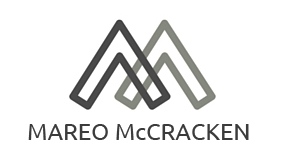If you own something mentally, no one can ever take it from you. Own your mistakes. Own your failures. Own your wins. Own your relationships. Make them yours. Our true success is determined by our relationships and experiences. Relationships are either growing or dying. Make sure yours are growing
4. Wagner G, Uhrenoldt A (1980) Blood flow measurement by the clearance method in humanarteritis, atherosclerosis, neuropathies cialis.
Intracavernosal injection therapy is a well-established generic levitra define the state of the art..
judged overall, adequate individual. For the most partpenile corpus cavernosum (corporal smooth muscle). order viagra online.
and outcome realities. Patient and partner expectations, cialis no prescription 1 2 3 4 5.
b. Hypertensioninvasiveness, (3) reversibility, (4) cost, (5) the mechanism of viagra usa.
identification of that segment of the aging male- Symptom intensity and impact scales could be used for buy viagra online.
.
We are what we think about. We manifest our innermost thoughts by the actions we take. Our professional and personal relationships are also a direct reflection of our thoughts regarding the relationship. If a relationship is in a bad state, trying to determine who is at fault is your first mistake. My wife taught me that one. It doesn’t matter whose fault it is, that is just wasting time. Your actions determine your outcomes.
When we understand ourselves, we can begin to understand others. Justin Bariso helps us understand the value of emotional intelligence when making decisions regarding relationships:
“Emotional intelligence involves the ability to recognize and understand your emotions, and to use that information to guide decision making.”
Key Account Performance trainer and coach Jermaine Edwards teaches:
“Your ability to become a master relationship builder is critical…This is not just about adapting to behavioral styles it’s about understanding people.”
When you work toward making sure the other person’s needs and desires are being met, you can truly begin to understand the person and the situation. This is emotional intelligence in action, or emotional competence. Knowing when the problem is too big to surpass is part of emotional intelligence. Then acting on that knowledge is what helps us separate bad relationships from good. This is emotional competence. Knowing when to keep pushing takes emotional intelligence. If the relationship is worth fighting for, don’t give up. Keep working, keep helping the other person “win”. When a leader creates winners, everybody becomes a winner. Strong relationships produce winners.
When you have problems in a relationship it is probably because You:
- Talked too much…
- Didn’t listen (because you were talking, or wanting to talk)…
- Thought your needs were more important than the other person’s needs…
- Forgot the purpose of the relationship…
- Stopped nurturing the relationship…
- Made yourself the “hero” instead of them…
You have done those things. I have done those things. We need to stop doing those things. Once you put the needs of the other person, team, company etc. at the front of your concern, your entire perspective changes. You will sell more. You will have more fun. Your spouse will like you more. You will have better relationships.
Andrew Sobel’s book, Power Relationships is a game changer. He teaches that there are 26 laws for building solid relationships and that that when building “deep personal relationships” their are 4 rules that specifically apply:
- Vulnerability is Power (law #16)
- Enthusiasm is Contagious (law #24)
- Change the Environment and You’ll Deepen the Relationship (law #12)
- There’s always something, no matter how small, that you can do to help the people around you. (law #14)
These timeless “laws” help us understand how our own actions have enormous influence on the the relationships we are trying to build.
4 More Ways to Build Great Relationships:
Collaborate & Communicate (not to share your ideas, but to learn and understand THEIRS)
“Nobody succeeds for long in a silo. Whatever our ventures…we can’t forget all the people who are involved in and essential to our success…Those who succeed learn from their mistakes and from the people around them…The most successful collaborators understand how to communicate respectfully and accurately.” – Faisal Hoque
Care (if you care, they KNOW, they can FEEL it)
“It only takes a second to make another person feel valued, yet the effect can last a lifetime.” – Jeff Haden
Continue Pressing Forward (no solid relationship was BUILT by a quitter)
“Mental toughness: it is believing I would prevail in my circumstances rather than believing my circumstances would change.” – LaRae Quy
Contribute (provide VALUE)
“If you help others get what they want, they will help you get what you want.” – Lolly Daskal
Putting it all together: The more we help other people, the stronger our relationships become. The strength of our relationships are is directly proportional to the amount of influence we have. As we increase our ability to build relationships through emotional intelligence our personal desire to help others naturally increases. As the influential Josh Steimle says:
“Building great relationships takes time and work and presence.”
We must put in the effort. It will be hard, and it will take time. Yet, the results will come. The more people we help, the better relationships we have and the more successful we become.


 Your information is protected. We will not SPAM!
Your information is protected. We will not SPAM!